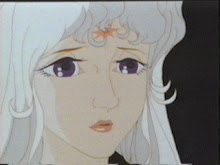


Look at those green 'buds' next to the white
bud, more can be seen in the 2nd pic. The
pretty red-edged white bloom is supposed to
be all over this plant. Instead, I get strange
clam-shell greenish faux buds-they never open & they stay green. I bought these corms at a nursery, I have gotten no flowers from the other plant. I thought I had bought 4 tuber/corms, 2 in a double red edged white
& 2 in a double pink flower.
I suspect that the corms/tubers came from China & with the NeoCons running things(into the ground) no one has noticed the falling standards. It is in plants & seeds from China-I am not getting the plants & seeds I paid for, instead I am getting much cheaper, more common plants. It reminds me of history class, back then the teachers said that the Chinese were tricking the British & selling them cheap stuff as high-quality goods. The British Empire's efforts to buy the tea plants is a good example; the Chinese gave the Brits tea roses(out of bloom) & because they smelled like tea the Brits sailed away on their wooden ships. Months later, when the 'Tea Plants' bloomed they realized they were suckered.
..."Tea Comes to Europe
When tea finally arrived in Europe, Elizabeth I had more years to live, and Rembrandt was only six years old. Because of the success of the Dutch navy in the Pacific, tea became very fashionable in the Dutch capital, the Hague. This was due in part to the high cost of the tea (over $100 per pound) which immediately made it the domain of the wealthy. Slowly, as the amount of tea imported increased, the price fell as the volume of sale expanded. Initially available to the public in apothecaries along with such rare and new spices as ginger and sugar, by 1675 it was available in common food shops throughout Holland.
As the consumption of tea increased dramatically in Dutch society, doctors and university authorities argued back and forth as to the negative and/or positive benefits of tea. Known as "tea heretics", the public largely ignored the scholarly debate and continued to enjoy their new beverage though the controversy lasted from 1635 to roughly 1657. Throughout this period France and Holland led Europe in the use of tea.
As the craze for things oriental swept Europe, tea became part of the way of life. The social critic Marie de Rabutin-Chantal, the Marquise de Seven makes the first mention in 1680 of adding milk to tea. During the same period, Dutch inns provided the first restaurant service of tea. Tavern owners would furnish guests with a portable tea set complete with a heating unit. The independent Dutchman would then prepare tea for himself and his friends outside in the tavern's garden. Tea remained popular in France for only about fifty years, being replaced by a stronger preference for wine, chocolate, and exotic coffees."......"Tea Arrives in England
Great Britain was the last of the three great sea-faring nations to break into the Chinese and East Indian trade routes. This was due in part to the unsteady ascension to the throne of the Stuarts and the Cromwellian Civil War. The first samples of tea reached England between 1652 and 1654. Tea quickly proved popular enough to replace ale as the national drink of England."...
The forerunner of Walmart, hehe
"The John Company
The John Company was granted the unbelievably wide monopoly of all trade east of the Cape of Good Hope and west of Cape Horn. Its powers were almost without limit and included among others the right to:
- Legally acquire territory and govern it.
- Coin money.
- Raise arms and build forts.
- Form foreign alliances.
- Declare war.
- Conclude peace.
- Pass laws.
- Try and punish law breakers." ((((So going all in with China & India has been done before)))))
Check it out, the Brits were drug dealers back in the day
..."The Opium Wars
Not only was language a problem, but so was the currency. Vast sums of money were spent on tea. To take such large amounts of money physically out of England would have financially collapsed the country and been impossible to transport safely half way around the world. With plantations in newly occupied India, the John Company saw a solution. In India they could grow the inexpensive crop of opium and use it as a means of exchange. Because of its addictive nature, the demand for the drug would be lifelong, insuring an unending market.
Chinese emperors tried to maintain the forced distance between the Chinese people and the "devils". But disorder in the Chinese culture and foreign military might prevented it. The Opium Wars broke out with the English ready to go to war for FREE TRADE (their right to sell opium). By 1842 England had gained enough military advantages to enable her to sell opium in China undisturbed until 1908."...Who knew FREE TRADE was a rerun?




No comments:
Post a Comment